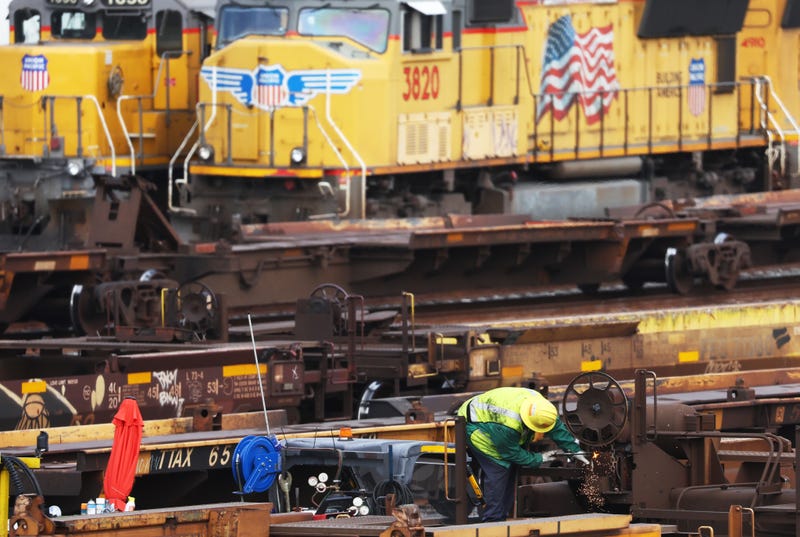
An interruption to the nation's rail system might be closer to reality. Last week, a proposed contract by the largest rail union — the Sheet Metal, Air, Rail and Transportation union (SMART) — was rejected. SMART represents about 28,000 employees.
There’s been some disagreement between the 12 unions involved, says Gregory DeYoung, professor of operations management at Southern Illinois University - Carbondale.
“The majority of unions have approved. There were eight unions that approved but there were four that did not,” he said. But of those four represent include two of the largest unions. “The votes were very close, and for the most part, so not a lot of 70-30 against the contract, or for — a lot of 51-49 type votes. So there's a lot of mixed feelings in the union's themselves.”
There are a couple big issues the unions are fighting for, DeYoung said. One of those is better working conditions.
“And the big sticking issue really is the sick pay. The unions are asking for 56 hours per year of sick time. The current contract does not include that,” he said. “The other big sticking point right now is the pay increases, and they seem generous on the face — it's 24% over three years. But as inflation continues to roll along at about 8% per year, that looks like almost keeping even rather than getting ahead on pay.”
So what does a strike mean for consumers? Supply chain issues could continue to grow worse, DeYoung said — plus, it affects truckers, which adds onto the supply chain problem.
“If a strike actually does occur, Congress does have the ability to pass a resolution. And if it's signed by the President, they can force the ending of a strike or of a lockout by the railways, by the way, basically in a threat to the nation's supply chain,” he said. “So it would take an actual act of Congress, but it's happened in the past.” However, he added, “there definitely is pressure on both sides to find a solution, rather than have a solution imposed upon them from outside.”
